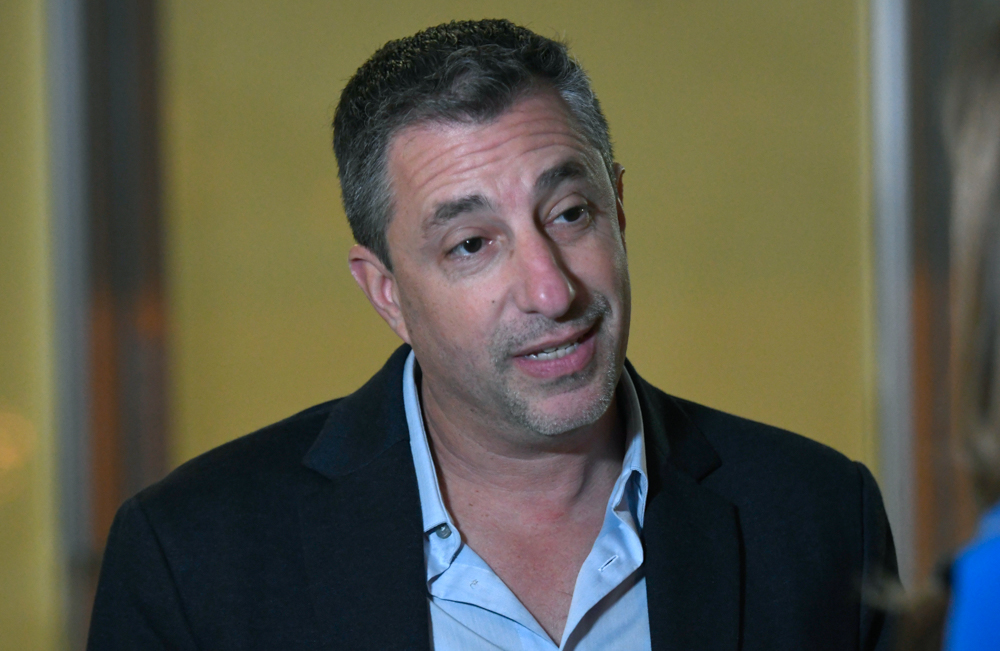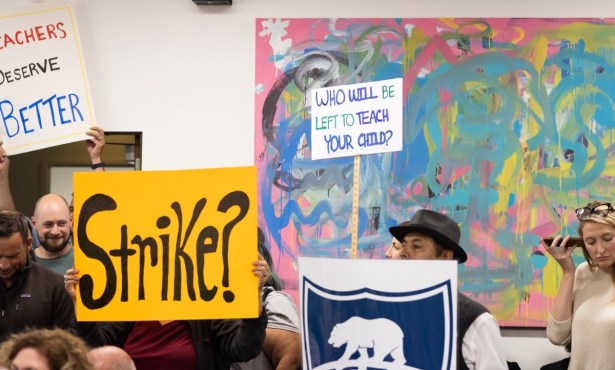Just Communities Opens Its Doors to Critics
Fair Education Given Opportunity to See Nonprofit’s Controversial Implicit-Bias Curriculum in Action

The nearly year-long brouhaha between Just Communities and Fair Education came to a head Tuesday night when Just Communities Executive Director Jarrod Schwartz offered to hold two public workshops for Fair Education members, allowing them to experience firsthand the curriculum they’ve demanded to see for months.
“Among the many ways in which Fair Education continues to spread misinformation about Just Communities is their assertion that our work is somehow a secret,” Schwartz said at Tuesday night’s school board meeting. “As I’ve said in the past, there are very real reasons why we do not put our materials online.” Those reasons included the nonprofit’s responsibility to make sure the curriculum isn’t misused by people without training and the potential for other entities to steal their intellectual property.
Fair Education, a group of 300 parents and other Santa Barbarans who oppose the nonprofit Just Communities’ implicit-bias education — voluntary classes intended to heighten racial awareness among students — recently filed a second lawsuit against the district and the nonprofit, claiming its curriculum is discriminatory toward people who are white, Christian, and conservative. For months, they have argued the curriculum is kept secret because Schwartz is hiding something.
“During the 2018-19 school year, we offered eight public workshops free and open to the public where anyone could come and experience our work firsthand,” Schwartz said. “This school year, we are offering four additional workshops in the same format. … I’m also offering Fair Education Santa Barbara two three-hour workshops for their constituency.” He said Fair Education could pick the venue and invite anyone they like, and he would schedule it according to what works best for their needs.
James Fenkner and Sheridan Rosenberg, two Fair Education members who rarely miss an opportunity to speak out against Just Communities at school board meetings, were joined by only one other Just Communities challenger when they spoke Tuesday. The other 10 or so commenters gushed over the program, continually citing their unwavering support for it.
“I’ve been involved with Just Communities for about three years now,” said Emily Vesper, a senior at San Marcos High School. “I’m white, middle class, and my parents are college educated, which makes my school experience easier for me. … Making schools more equitable benefits everyone. I learn so much more when my classmates are different than me. Just Communities is not anti-white; I believe there is a vast difference in being aware of your identity and privilege and having guilt and shame over that.”
Although neither Fenkner nor Rosenberg addressed Schwartz’s invitation to attend the workshops, Fenkner did address Vesper’s comment and kept the rest of his own to a petition with over 700 signatures demanding Superintendent Carey Matsuoka’s contract not be extended.
“I wanted to thank the young lady who had a good experience. … The problem is, what about those who have a bad experience?” Fenkner said. “I’m here to talk about another change.org petition entitled ‘We Oppose Any Extension of Superintendent Cary Matsuoka’s employment contract.’”
He listed five reasons the more than 700 people signed the petition not to renew Matsuoka’s contract as follows: poor district-wide academic performance, unacceptable school facilities, reckless financial oversight, inadequate community outreach, and irresponsible management style. The full petition can be found here.
Matsuoka “set the record straight” on many of those claims before Fenkner took to the podium, an unusual move for the superintendent who’s been frequently characterized as being silent on controversial issues. He dismissed the “misinformed” public comments — mostly by Fair Education members — regarding Just Communities’ curriculum and other issues that have become a habitual part of board meetings in recent months.
He said the continued complaints about the inoperable windows at Santa Barbara High School being a safety hazard were bogus — a frequent example used by Fair Education members of the “unacceptable school facilities” under Matsuoka’s leadership. “The SBHS windows are not designed as escape routes; they are designed for ventilation. There are no ladders. The proper way to leave in an emergency is through the doorways,” he said.
He also addressed the comments by some members that the district uses pornographic, explicit reading materials in its sexual education curriculum. “Those assertions are false; what is being portrayed is false,” Matsuoka contested.
“Over the last few months, we’ve heard concerns expressed about what is being taught in Talking in Class, part of our contract with Just Communities,” Matsuoka said. “We wanted to assure the public that starting last spring, a certificated staff member is present throughout the entire Talking in Class experience. Their role is to ensure the experience of our students is safe and appropriate.”
Fair Education intends to fully present the petition at the next board meeting, when Matsuoka’s contract renewal is on the agenda.



